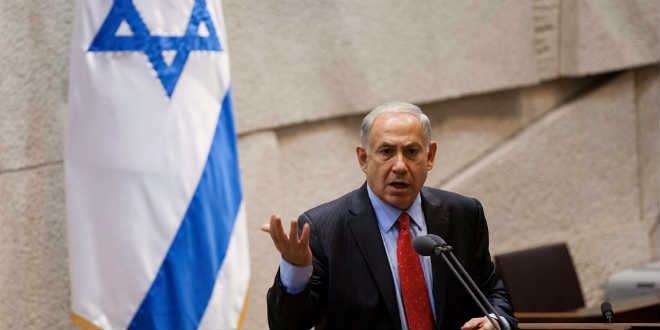And if it will make no peace with thee, but will make war against thee, then thou shalt besiege it. (Deuteronomy 20:12)

At a commemoration for the 40th anniversary of the Yom Kippur War at the Knesset on Tuesday, Israeli Prime Minister Benjamin Netanyahu gave a fairly transparent speech that would appear to be a defense for a preemptive strike against Iran, according to The Times of Israel.
In a speech to MKs about the war, in which Israel was surprised by a coordinated Arab invasion on the northern and southern fronts, Netanyahu explained that IDF soldiers who fought in the bitter battles of that war “saved us from paying the price of complacency.”
“In the end we won a great victory, but the lessons of the war have stayed with us these 40 years,” Netanyahu said.
“The first lesson is to never underestimate a threat, never underestimate an enemy, never ignore the signs of danger. We can’t assume the enemy will act in ways that are convenient for us. The enemy can surprise us. Israel will not fall asleep on its watch again,” he vowed.
The second lesson, he added, was that “we can’t surrender the option of a preventive strike. It is not necessary in every situation, and it must be weighed carefully and seriously. But there are situations in which paying heed to the international price of such a step is outweighed by the price in blood we will pay if we absorb a strategic strike that will demand a response later on, and perhaps too late.”
Netanyahu added: “A preventive war, even a preventive strike, is among the most difficult decisions a government can take, because it will never be able to prove what would have happened if it had not acted. But the key difference between the [1967] Six Day War and the [1973] Yom Kippur War lies first of all in the fact that in the Six Day War we launched a preventive strike that broke the chokehold our enemies had placed on us, and on Yom Kippur the government decided, despite all warnings, to absorb the full force of an enemy attack.”
Sources close to the Prime Minister’s Office suggested the Tuesday speech was directed at the Iranian issue.
Netanyahu also offered hints at Israel’s negotiating position in peace talks with the Palestinians.
“The third lesson” of the war, he said, “is the strategic importance of buffer zones. [Israel’s] control of the Golan [Heights] and the Sinai Peninsula [in 1973] prevented an enemy penetration deep into the country” in the first days of the war.
Press reports sourced to leaks from the peace talks with the Palestinians have suggested in recent days that Israel seeks to retain security control over the Jordan Valley as a buffer zone to the east.
And, Netanyahu said, “there is a fourth lesson: Peace is attained from a position of strength. In the Yom Kippur War, despite the enemy’s excellent opening position, they learned they could not best us with weapons. Five years later, [Egyptian president Anwar] Sadat and [prime minister Menachem] Begin signed a peace deal, and later [peace accords were signed] with Jordan.
“Now we are engaged in a serious investment in [making] peace with the Palestinians,” Netanyahu added. “Peace was achieved when our neighbors understood we are powerful and will not disappear.”



